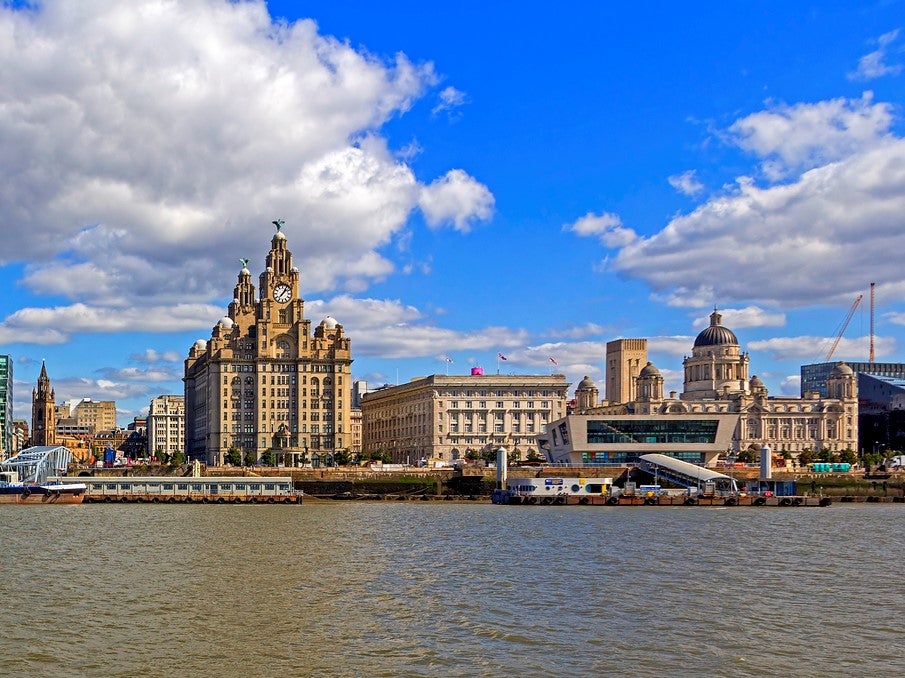Liverpool loses Unesco world heritage site status: why city was stripped of much-cherished title
United Nations body says waterfront’s ‘outstanding universal value’ has been compromised by new developments and regeneration

Your support helps us to tell the story
From reproductive rights to climate change to Big Tech, The Independent is on the ground when the story is developing. Whether it's investigating the financials of Elon Musk's pro-Trump PAC or producing our latest documentary, 'The A Word', which shines a light on the American women fighting for reproductive rights, we know how important it is to parse out the facts from the messaging.
At such a critical moment in US history, we need reporters on the ground. Your donation allows us to keep sending journalists to speak to both sides of the story.
The Independent is trusted by Americans across the entire political spectrum. And unlike many other quality news outlets, we choose not to lock Americans out of our reporting and analysis with paywalls. We believe quality journalism should be available to everyone, paid for by those who can afford it.
Your support makes all the difference.Liverpool has been stripped of its much-cherished world heritage site status after Unesco chiefs voted to delete it from the list because the city had failed to properly conserve the area.
The UN’s heritage body said it was removing the city’s historic waterfront from the list – which includes sites such as the Taj Mahal, Venice and the Great Wall of China– because its “outstanding universal value” had been compromised by new and proposed buildings, including Everton football club’s new £500m stadium.
Thirteen of 21 countries voting in a secret ballot at a meeting in China were in favour of the deletion.
A previous draft notice which recommended removing the city from the list said that “inadequate governance processes, mechanisms and regulations” had resulted in a “significant loss” to the “authenticity and integrity” of the site.
The final decision comes eight years after Unesco first put Liverpool on its so-called danger list following the city council’s approval of a £5bn scheme to regenerate the northern docks – seen as key to creating jobs for the region.
A Unesco report said the scheme – which includes creating five new waterfront neighbourhoods on former industrial land – had “progressively eroded the integrity of the property”.
And it added that the development of Everton’s new Bramley-Moore dock ground – which begins later this month – would increase the “threat of further deterioration” of the area’s historic value.
But the decision was met with fury by city leaders, who pointed out that £700m had been invested in upgrading 119 historic buildings since then. UN inspectors, they said, had not even visited the city since 2015.
Joanne Anderson, mayor of Liverpool, said: “UNESCO have got this completely wrong. For starters, the report that was drafted for the World Heritage Committee is littered with errors and unsubstantiated claims ... [the chief error being] the assertion our World Heritage site has deteriorated. I’m sorry – that is patently untrue. It is quite the reverse. In fact, Liverpool’s site has never looked better.”
She said that she had written to the committee asking them to visit – and work with – the city, but the plea had been declined. “It’s clear, now, that UNESCO didn’t want to see. Or listen. Or engage,” she said.
And she added: “The story [our historic buildings] tell is one that defined not just Liverpool, but Britain and the world in the 18th, 19th and 20th centuries. That history is not erased with the loss of this status.”
Speaking earlier this week, she said Liverpool’s economic development could not be held back by Unesco officials based in Paris.
Steve Rotheram, the metro mayor of the Liverpool city region, described the move as a “retrograde step”.
He said: “It was a decision taken on the other side of the world by people who do not appear to understand the renaissance that has taken place in recent years.
“But many of the sites cited by Unesco are in communities sorely in need of investment. Places like Liverpool should not be faced with the binary choice between maintaining heritage status or regenerating left-behind communities and the wealth of jobs and opportunities that come with it.”
Unesco’s decision makes Liverpool only the third place to lose the status, after Oman’s Arabian Oryx Sanctuary in 2007 and the Dresden Elbe Valley in Germany in 2009.
It comes just 17 years after the city was first included in the register in recognition of both the architectural beauty of the site and its historic importance within the British empire.
At the time, Unesco described it as “the supreme example of a commercial port at the time of Britain’s greatest global influence”.
In particular, the “Three Graces” – the Liver, Port of Liverpool and Cunard buildings – as well as the Albert Dock were all key in it winning a place on the list.
Join our commenting forum
Join thought-provoking conversations, follow other Independent readers and see their replies
Comments